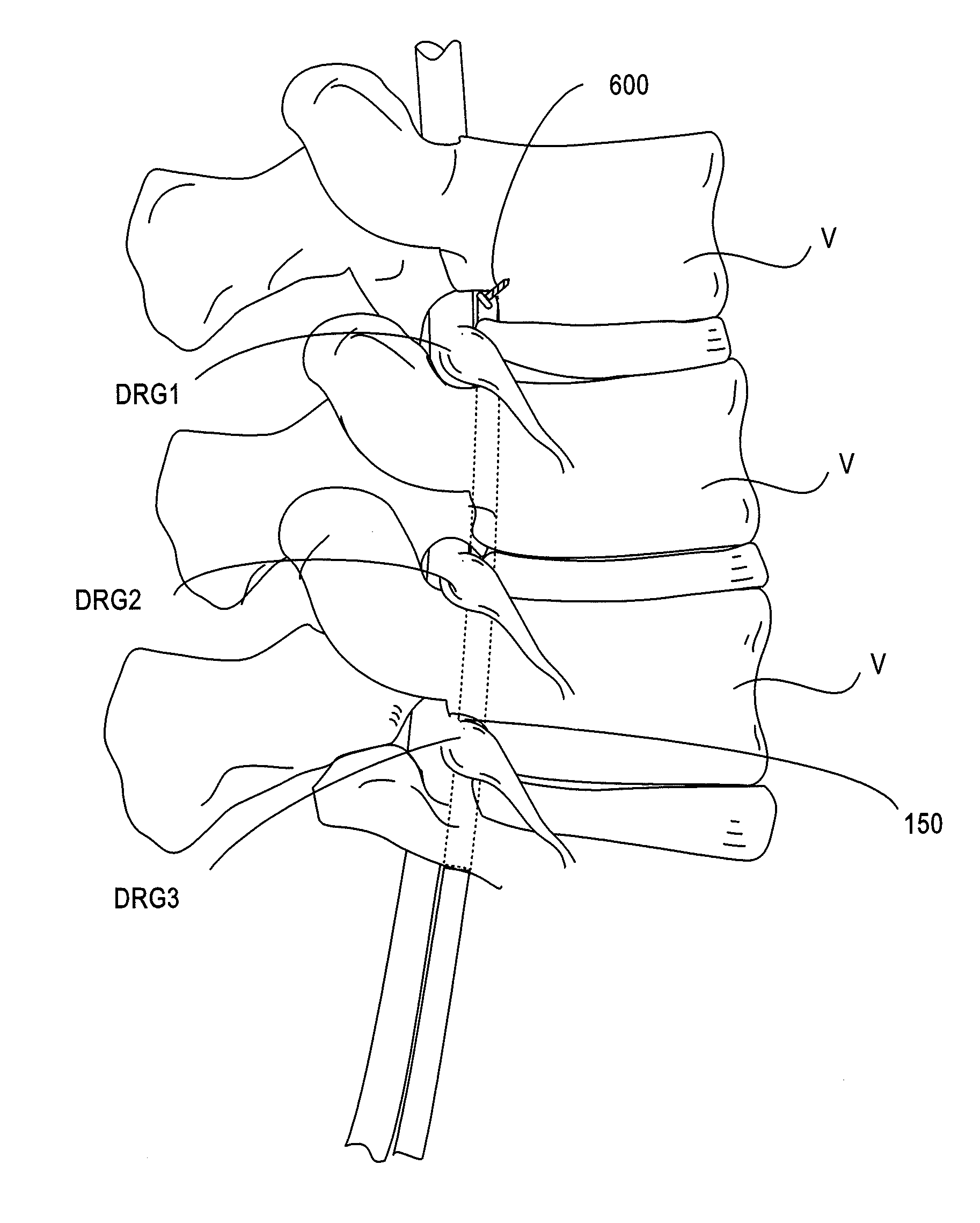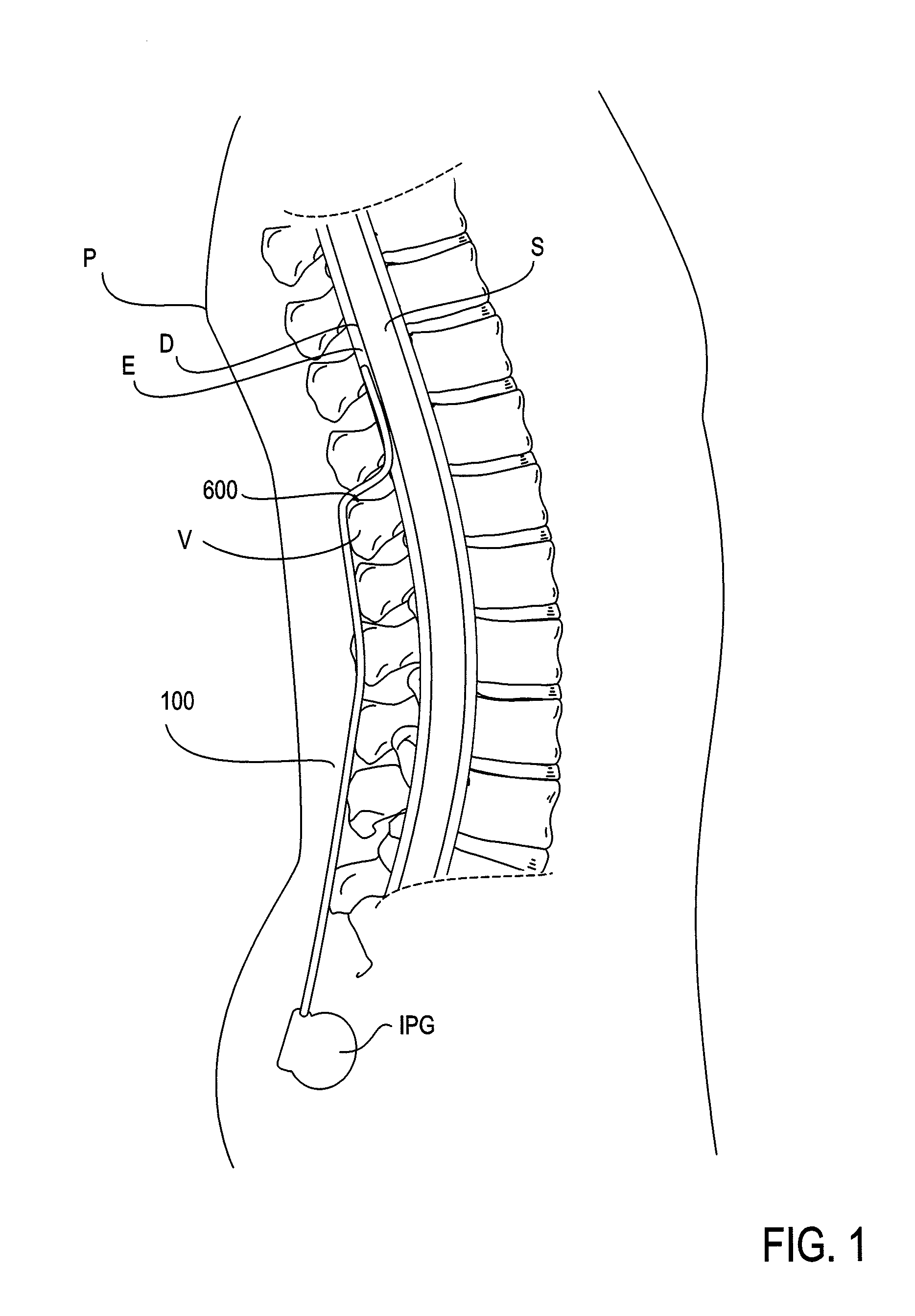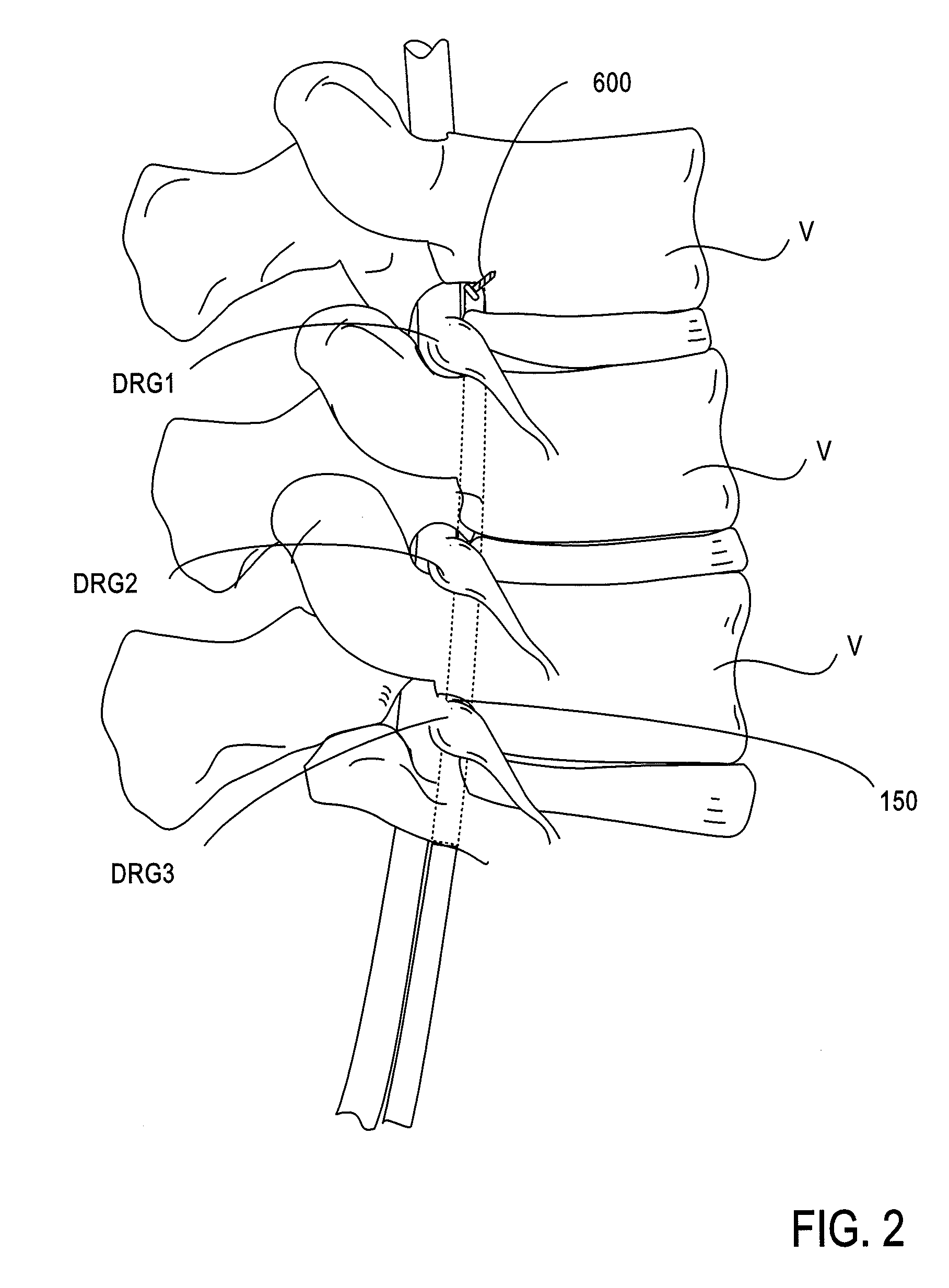Hard tissue anchors and delivery devices
a technology of hard tissue and anchors, which is applied in the direction of ligaments, surgical staples, therapy, etc., can solve the problems of limiting the area and types of tissue available for suturing thereto, migration and pull-out, and achieve the effect of reducing the migration of the device and strengthening the attachmen
- Summary
- Abstract
- Description
- Claims
- Application Information
AI Technical Summary
Benefits of technology
Problems solved by technology
Method used
Image
Examples
Embodiment Construction
[0039]The present invention provides devices, systems and methods for anchoring medical devices to hard tissues, such as bones or bony structures, particularly vertebrae. A variety of medical devices are used to treat portions of the anatomy which reside near bones or bony structures within the body of a patient. For example, spinal cord stimulators (SCS) are positioned along the spinal column to treat pain. FIG. 1 illustrates a conventional SCS system comprising an implantable lead 100 and an implantable power source or implantable pulse pulse generator IPG. Using fluoroscopy, the lead 100 is implanted into the epidural space E of the spinal column S and positioned against the dura layer of the spinal cord. The lead 100 is implanted either through the skin via an epidural needle (for percutaneous leads) or directly and surgically through a mini laminotomy operation (for paddle leads). In either case, the leads 100 extend from the spinal column S to the IPG which is remotely implant...
PUM
 Login to View More
Login to View More Abstract
Description
Claims
Application Information
 Login to View More
Login to View More - R&D
- Intellectual Property
- Life Sciences
- Materials
- Tech Scout
- Unparalleled Data Quality
- Higher Quality Content
- 60% Fewer Hallucinations
Browse by: Latest US Patents, China's latest patents, Technical Efficacy Thesaurus, Application Domain, Technology Topic, Popular Technical Reports.
© 2025 PatSnap. All rights reserved.Legal|Privacy policy|Modern Slavery Act Transparency Statement|Sitemap|About US| Contact US: help@patsnap.com



